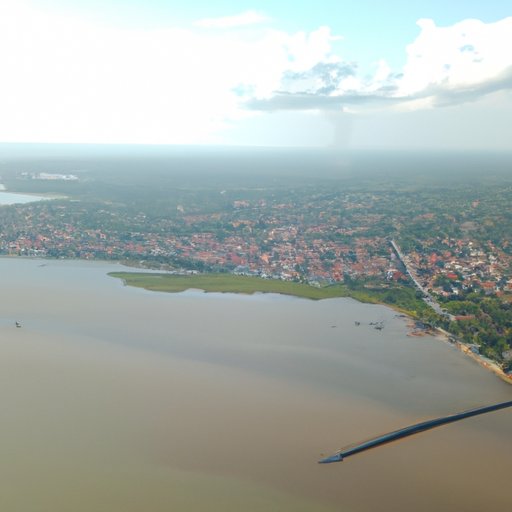Why Do Brazilians Speak Portuguese?
When we think of Brazil, we often think of samba, carnival, and the Amazon rainforest. But did you know that Brazil is the largest Portuguese-speaking country in the world? With a population of over 211 million people, Brazilian Portuguese is spoken by millions of people worldwide. In this article, we’ll explore the reasons why Brazilians speak Portuguese and why it’s important to understand the history and cultural significance of the language.
Historical Reasons
Brazil’s colonial history is perhaps the main reason why Portuguese is the official language in Brazil today. Brazil was discovered and claimed by the Portuguese navigator Pedro Álvares Cabral in 1500 and was a colony of Portugal for over 300 years. During this time, Portuguese was the language of the court, government, church, and elite education. It was only after Brazil gained independence in 1822 that Portuguese became the official language of the newly formed republic.
Despite political independence, Portuguese continued to be the primary language of Brazil. Portugal’s influence can still be seen in many aspects of Brazilian society today, including the legal system, architecture, and food. Many Brazilian words and expressions have Portuguese origins and the official spelling of Brazilian Portuguese is based on the Portuguese style of spelling.
Cultural Influence
The Portuguese language has also had a significant impact on Brazilian culture. Brazilian literature, music, and arts are heavily influenced by Portuguese culture and history. Many famous Brazilian writers, such as Machado de Assis and Clarice Lispector, wrote in Portuguese. Brazilian music, including bossa nova and samba, have Portuguese roots and are still popular today.
The Portuguese language has also become deeply integrated into Brazilian society and everyday life. It is the language of education, media, and the internet. It is the language used in business, travel, and communication between different regions of Brazil.
Linguistic Study
While Brazilian Portuguese is based on European Portuguese, there are some significant differences between the two languages. Brazilian Portuguese has its own unique pronunciation, vocabulary, and grammar. It is also influenced by other languages spoken in Brazil, such as indigenous languages and African languages.
There are several dialects of Portuguese spoken in different regions of Brazil, such as the Northeast, South, and Amazon. These dialects often have their own distinct pronunciation, vocabulary, and grammar. While Brazilian Portuguese is sometimes seen as a separate language from European Portuguese, they are generally considered to be mutually intelligible.
Geographic Reasons
Brazil’s location has also had a significant impact on the language that is spoken. Brazil is located in South America, surrounded by Spanish-speaking countries such as Argentina and Uruguay. However, Brazil’s isolation from these countries has led to the widespread use of Portuguese in Brazil.
Economic Factors
The Portuguese language is also critical to Brazil’s economy. Brazil is currently the ninth most significant economy in the world, and Portuguese is the sixth most widely spoken language globally. Learning Portuguese can open up business and career opportunities in Brazil, especially in industries such as oil and gas, finance, and tourism.
Conclusion
In conclusion, understanding why Brazilians speak Portuguese is essential to understand Brazil’s history, culture, and identity. Portuguese has become deeply integrated into Brazilian society, and it is the language of education, media, and business. It has also had profound cultural and linguistic influences on Brazil. Knowing Portuguese can open up many opportunities in Brazil, either for work, study, or travel.
